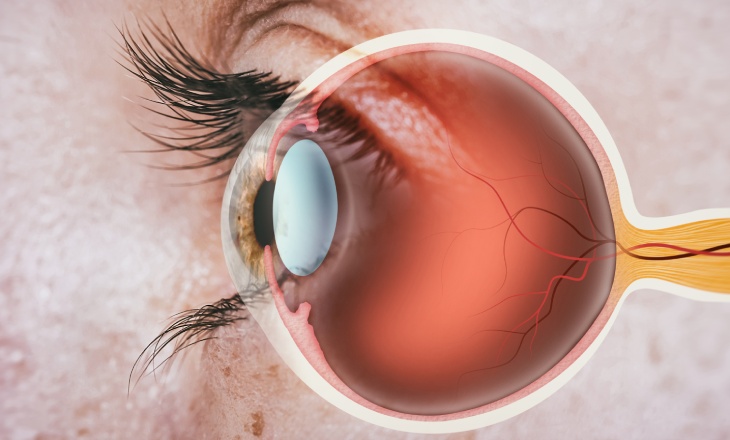
Patients frequently ask me why I need to know what medications they are taking and any systemic conditions they have. It can be difficult to see the relevance of these conditions in an eye exam.
Aside from trying to treat my patients as whole people and not just a walking set of eyeballs, the eyes are a part of the body and can be affected by many aspects of our general health.
View to the Inside
One of my favorite facts about the eye is that it is the only part of the body where we can look and actually see our blood vessels in action.
Because these ocular veins and arteries are so tiny, they tend to be affected early in vascular diseases. For example, we can see the structural changes related to hypertension. If a cholesterol plaque breaks off the wall of an artery, it can travel through the bloodstream until it gets lodged in one of these small vessels, causing essentially a stroke in the eye.
Additionally, cholesterol tends to form deposits in and around the eye, including in the cornea and on the eyelids.
What Can Be Diagnosed in an Eye Exam?
It is fairly common for diabetes to be diagnosed through an eye exam. A dilated exam can show blood leaking from the vessels or swelling in the back of the eye.
Additionally, patients can often have large changes in their vision and prescription as a direct result of high and fluctuating blood sugar levels. In severe cases, the retina can actually create new blood vessels, which tend to break and cause many complications, including large hemorrhages, retinal detachments, and glaucoma.
These are all reasons we want to know the most recent HbA1c levels and blood sugar readings, and yet another reason why patients with diabetes should work to maintain stable and healthy blood sugar levels.
Autoimmune Diseases
Apart from vascular conditions, many other conditions can affect the health of our eyes.
Autoimmune diseases, such as rheumatoid arthritis, lupus, multiple sclerosis, and many others, can cause ocular inflammation. Depending on which part of the eye is involved, complications can include severe dry eye, painful internal inflammation, and loss of vision. Unfortunately, some cancers can also spread to the eye.
Medication Side Effects
In addition to conditions that can impact eye health, many medications can also have ocular and visual side effects.
A few common ones include:
- Blood thinners can cause bleeding
- Antihistamines can cause dry eye
- Some ADHD medications can impact a child’s near vision
Some medications can have serious and potentially blinding side effects, including inducing glaucoma and ocular vascular occlusions.
This includes over-the-counter medications (flonase can cause cataracts!) and vitamins. Some vitamins are essential for good ocular health and are recommended through diet or supplements. Both an insufficiency and sometimes an excess can impact the function of the eyes.

How Does Lifestyle Impact Eyes?
Lifestyle can also impact our eyes. What’s good for the body is good for the eyes. Proper diet and frequent exercise help keep them healthy.
On the reverse side of that, smoking has been linked to some ocular diseases, such as macular degeneration. So, if you need another reason to quit, potentially losing your vision is one!
Excess alcohol consumption can also be toxic to our eyes. Even having too much caffeine can be associated with ocular migraines.
Eye-Body Connection
These are just a few examples of the connection between the eyes and the rest of the body. Regular eye exams can help determine if you are at risk of complications or even reassure you that you are doing everything right. Optometrists are trained to diagnose and manage these conditions and complications, and often, the sooner they are diagnosed, the better the prognosis. So make sure you have your annual exam, and don’t forget to bring your medication list!
Book an appointment with our team at Littleton Eye Care Center today.


